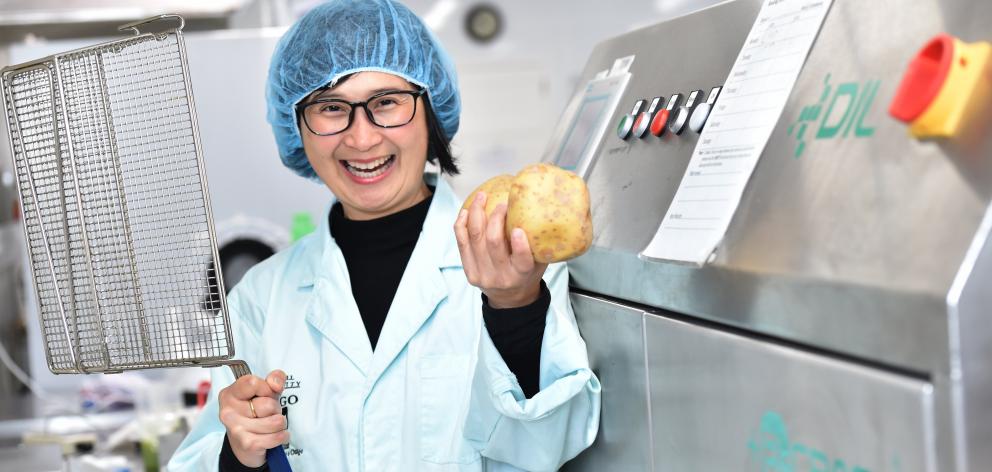
The department of food science today begins trialling a "Pulsed Electric Field" processing machine, which it hoped could turn French fries into a healthier, environmentally-friendly snack option.
The PEF machine uses microsecond-long pulses of electricity to alter the microstructure of uncut potatoes.
This results in a more controlled release of sugar, a reduction in oil uptake, and softening of the potato texture, which made potatoes are easier to cut, leading to reduced waste production, food science Professor Indrawati Oey said.
"Everyone eats potatoes," Prof Oey said.
"If you can reduce the waste, we can increase the efficiency.
"It has quite a big impact in business performance, but more importantly, for the consumer, you can also reduce oil.
"It is already enough for us to have the fat content in the potato chips itself because we use quite a lot, and we eat quite a lot."
Prof Oey said potentially for PEF machine could enhance the quality of other foods.
"This application for softening, you can also use for carrots, parsnips, all of the vegetables we can use.
"We have other applications for wine for the maceration times we can shorten."
However, seasonal difficulties surrounding wine production has made potatoes and other vegetables a priority for testing, Prof Oey said.
The Ministry for Business and Innovation programme which introduced the new technology to the University of Otago is worth nearly $16.8 million over a six-year period.
Massey University, the University of Auckland, Plant & Food Research, AgResearch, and the Riddet Institute are also involved in the programme.
By Alex McLeod

